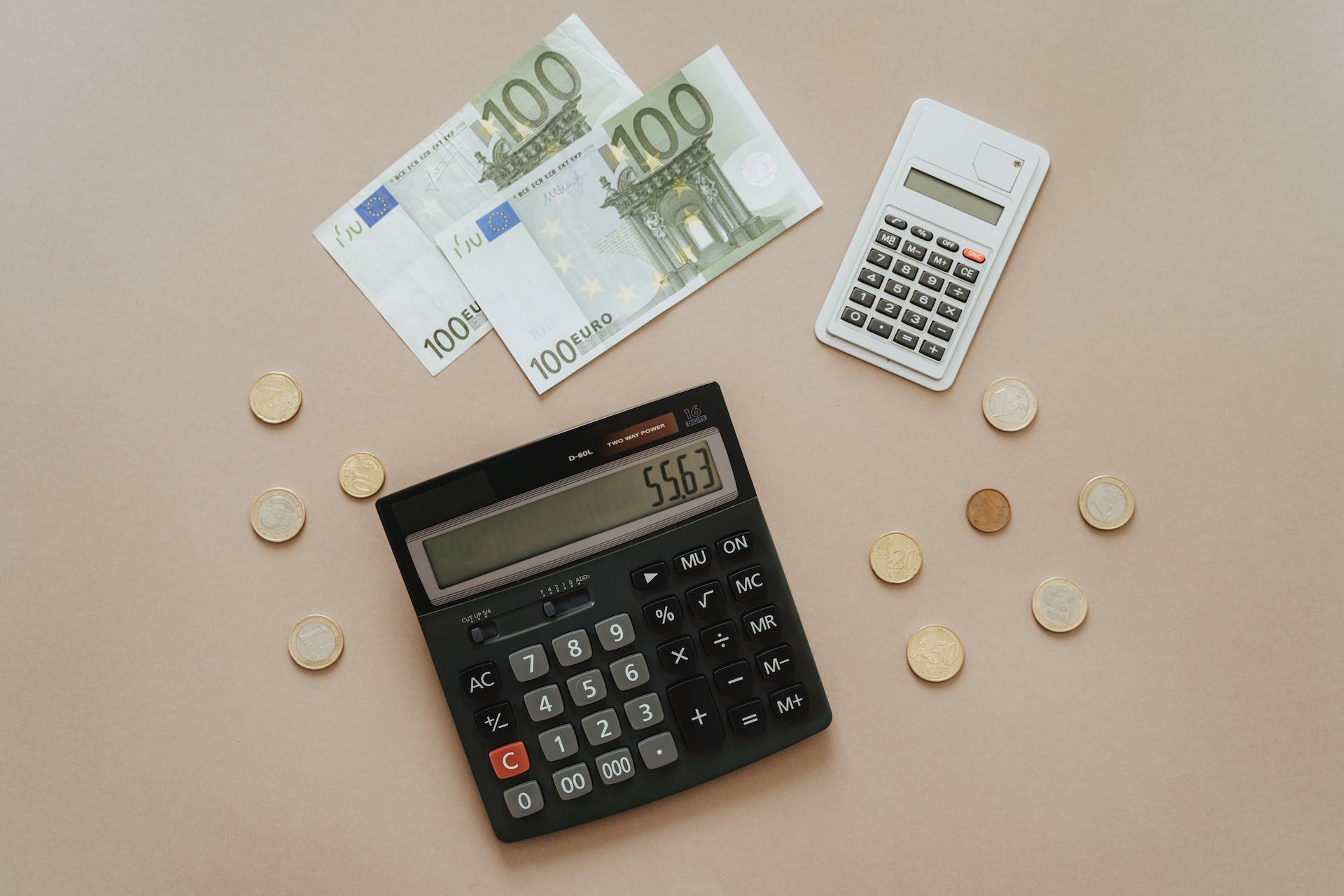For the self-employed, proof of income is pivotal for various transactions, from renting an apartment to securing a loan or mortgage. However, proving your financial earnings can be challenging, especially considering your unique work circumstances.
But don’t fret! In this article, we will explore various tips and methods to help simplify the process of providing this document like a true self-employed professional!
Key Takeaways
- Proving income is vital for self-employed individuals in many financial transactions.
- There are various methods to simplify the process of providing proof of income.
- Accurate record-keeping, utilizing legal documents, and seeking professional help can be beneficial.
- By following the tips and methods outlined in this article, you can ensure a smooth verification of your financial earnings.
The Importance of Proof of Income for the Self-Employed
You may require this document when applying for a loan, renting a property, or even when the tax season approaches. It demonstrates to lenders, landlords, and other entities that you have a steady income stream and the ability to repay any debts or rent.
Without it, it can be difficult to access financial resources such as loans or credit. Additionally, it can make it challenging to rent a property or even purchase insurance.
Having evidence of your income can also be beneficial for tax purposes. The Internal Revenue Service (IRS) requires that the self-employed ones file taxes and report their earnings accurately. Accurate record-keeping and financial documents can make the process more manageable.
Providing Proof of Income as a Self-Employed Individual
As a self-employed person, you may find it challenging to provide proof of income to lenders or landlords. However, there are several methods you can use to demonstrate your financial earnings, including:
Paystubs
If you have made arrangements with a company to pay you as an independent contractor, you may be able to obtain paystubs to verify your income. Contact the company’s payroll department to request your paystubs, and provide them with your social security number or tax identification number.
Paycheck Records
If you don’t receive paystubs, you can use paycheck records to show evidence of your income. These records should indicate the amount you earned and the date of payment.
Tax Returns
Self-employed people must file annual tax returns to report their income and expenses. These returns provide a detailed record of your earnings and can be used to show proof of income for self-employed. Be sure to keep accurate records of your income throughout the year, as well as your expenses, and consult a tax professional to ensure that your tax return is filed correctly.
Bank Statements
This document can also be used to verify your income as a self-employed person. The statements from the bank should show the deposits you made into your accounts, as well as any expenses you paid. Keeping copies and organizing them by date to simplify the process of demonstrating your income would be a wise call.
Profit and Loss Statements
Creating a profit and loss statement can also help. This statement summarizes your expenses and income during a specific time period and demonstrates the profit or loss you incurred. You can create this statement using accounting software or by working with a professional.
Alternative Methods for Proving Income When Paid in Cash
If you’re self-employed and receive cash payments, verifying your income may be more challenging. However, there are alternative methods and strategies you can use to demonstrate your income accurately.
One way to prove your income when paid in cash is to keep detailed records of your transactions. This can include receipts, invoices, and other documents that show the services you provided and the corresponding payment received. These records can be used to estimate your total income and provide evidence of your earnings, even if you don’t have a traditional pay stub or paycheck records.
Another option is to ask your clients or customers for written statements or testimonials that verify the services you provided and the corresponding payment amount. This can serve as income proof, especially when combined with other financial documents.
Alternatively, you may consider opening a separate bank account for your self-employment income. This can help keep track of your earnings and provide a record of your income that can be used to demonstrate your financial standing. You can also use this account to deposit cash payments and organize your finances more efficiently.
The Role of Tax Returns and Financial Documents in Proving Income
It is essential to file an annual tax return to accurately report your total income. This document can serve as solid proof of your financial earnings and expenses when required. Ensure that your tax return accurately reflects your income for the year, as any discrepancies could result in trouble with lenders or landlords.
Keep in mind that lenders and financial institutions may also request other financial documents when verifying your income. Bank statements, income and expense reports, and profit and loss statements can also serve as valuable evidence of your income.
When filing your taxes, be sure to claim all deductions to reduce your taxable income. However, keep in mind that deductions may lower your taxable income, but they may also lower your documented income and affect your ability to provide solid proof of your earnings.
Engaging Professional Help: Accountants and Legal Documents
If you’re self-employed and struggling to provide evidence of your earnings, seeking the assistance of a professional accountant can be beneficial. They can help you organize your financial records and statements and guide you through the process of filing taxes and deductions.
Utilizing legal documents, such as a 1099 form or W-2, can also help strengthen your case. The IRS recognizes these documents as official proof of your income and can be used to support your claim. Freelancers and self-employed people should also be aware of their tax obligations and ensure they’re filing their taxes accurately and on time.
Finding proof of income when self-employed may not seem easy, but a legal, official document can go a long way. If you have a contract or written agreement with a client, this can be used as proof of your income. Additionally, seeking legal advice and drafting legal papers can add extra weight to your case should you need to present your income.
Conclusion
For the self-employed, proof of income is vital for various financial and business transactions. By following the tips and methods outlined in this article, you can simplify the process and ensure a smooth verification of your financial earnings.
Remember to keep accurate records of all your income, as well as your expenses. Utilize various methods, like paystubs, paycheck records, tax returns, and profit and loss statements, to verify your income. If you receive cash payments, use alternative methods and strategies to prove your income accurately.
Seeking the assistance of professionals can be beneficial as well. Additionally, utilizing legal forms like 1099 forms, W-2s, and other IRS documents can further strengthen your case.
Self Employed Proof of Income FAQ
#1. Why is providing proof of income important for self-employed individuals?
The reason why this is crucial for self-employed individuals is that it allows lenders, landlords, and other entities to verify your financial stability and assess your ability to meet financial obligations.
#2. What are some common methods for showing proof of income as a self-employed individual?
Some common methods for showing proof of income include providing paystubs, paycheck records, tax returns, and profit and loss statements.
#3. How can I prove my income when I am paid in cash?
You can accomplish this by maintaining accurate records, such as detailed receipts, invoices, and bank deposits, which can demonstrate your financial earnings.
#4. How do tax returns and financial documents play a role in proving income?
Tax returns and financial documents, such as expense and income reports, provide concrete evidence of your self-employed income and can serve as reliable proof for lenders, landlords, and others. They report various sources of income, including wages, dividends, and other earnings, which make them highly valuable in various industries and situations.
#5. Why is it important to keep organized financial records and statements?
Keeping organized financial records is important to self-employed individuals for compliance with regulations, effective budgeting, simplified tax preparation, offering proof of income, informed decision-making, and enhancing credibility for loan approvals and credit.
#6. Can professional help and legal documents help me prove my earnings?
Engaging the services of an accountant and utilizing legal forms, such as 1099 forms and W-2s, can help when offering proof of income. These professionals and documents provide credibility and accuracy to your financial earnings.





